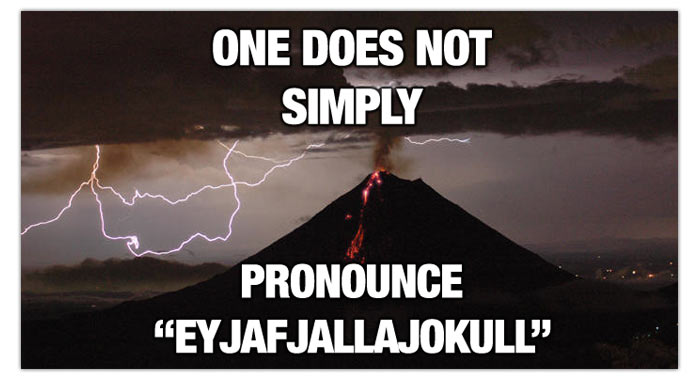Iceland’s erupting volcano Mt. Eyjafjallajokull has certainly been in the news a lot this week, and the media here was filled with stories of poor European travelers who were unable to return home, and had to wait at Narita Airport for days to find out when flights would be resumed. One group from Norway was upbeat, though, saying, “It’s okay, really. It’s more opportunity to enjoy the delicious food and pleasant people in Japan.” There’s been a lot of mirth at the inability of anyone not from Iceland to correctly pronounce “Eyjafjallajokull,” which looks, Yasu observed to me, like something his baby daughter would type on a computer keyboard. In Japanese, the concept of not being able to pronounce a certain word is a bit difficult to grasp due to the syllabic nature of katakana, which guarantees you can at least see how the syllables should sound (see example, above). The downside to katakana is that all sounds will be filtered through the limited Japanese phonetic system, which is why Japanese have such thick accents when speaking English, but at least everyone can pronounce “Evangelion” the same way.
















